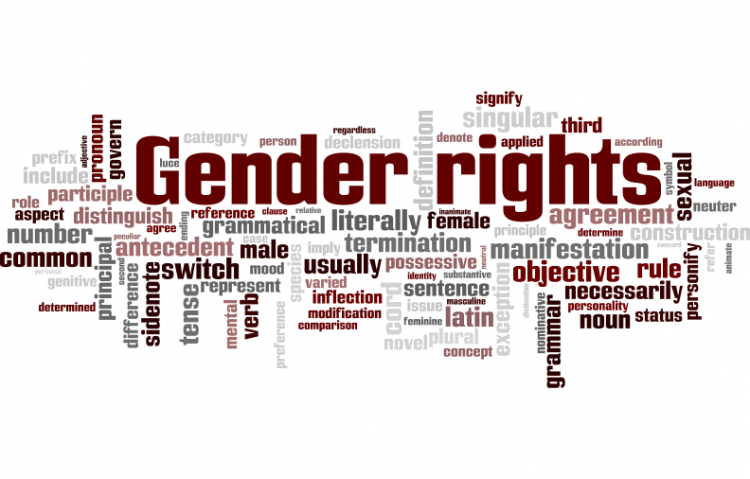
- Target:
- Global
- Region:
- Europe
- Website:
- www.gender-summit.eu
This Manifesto represents views of individuals working in the European science system on the actions needed to enhance research and innovation by addressing gender equality issues.
Each action distils the collective responses to questions asked in the online public consultation conducted by genSET in conjunction with the 1st European Gender Summit. As such, it complements the consensus recommendations of: a) the genSET Science Leaders Panel1, b) the DG Research, Innovation and Science Expert Group on Structural Change in Research Institutions2, and c) the Gendered Innovations project3.
The Manifesto elaborates the question included in the earlier EC public consultation on the Green Paper - “What actions should be taken at EU level to further strengthen the role of women in science and innovation?” - in order to focus attention on twenty-five years of research demonstrating how gender impacts the quality of research and innovation.
Over 300 individuals participated in the online consultation. These contributions were presented and discussed at the First European Gender Summit in Brussels, attended by over 400 stakeholders.
This Manifesto is a work in progress to be advanced through evidence based actions and cooperation between scientists, policy makers and gender research scholars.
We, the undersigned European scientists, scholars and researchers call for integrated and coordinated action on the gender dimension in research and innovation. Striving to enhance the European Research Area and Innovation Union, we wish to:
1 Recognize that past EU Framework Programmes have failed to engage, benefit, and promote women to the same extent as men (still less than 20% of senior Grade A posts are awarded to women). The EC needs to ensure that the gender imbalance is corrected in HORIZON 2020. Amsterdam Treaty provides the legal basis requiring that “Each Directorate-General is responsible for mainstreaming equal opportunities into its policy areas (4).” The solid evidence showing how gender inequalities can negatively impact on the quality of scientific research should inform all levels of R&D budget management, at the national level, by research agencies, and universities. Continuing dialogue between policy makers, scientists and gender research experts will help ensure that mainstreaming actions bring about the desired gender equality improvements.
2 Ensure that explicit requirements to address gender issues are included when the priorities of HORIZON 2020 are translated into specific research Calls. Ensure that the individual budgetary commitments are seen as investment in society and include flexible financial measures to incorporate the gender dimension: a) as part of research design and process; b) in creating balanced teams; and c) in enabling researcher and leadership training. The strong societal focus that defines the HORIZON 2020 priority areas will require interdisciplinary solutions. Sensitivity to gender issues promotes such connections and creates new opportunities for knowledge transfer that increase markets for scientific knowledge.
3 Move towards more gender balanced, collective and cooperative systems that: a) welcome diverse leadership styles; b) facilitate more distributed problem solving; c) adopt fair assessment criteria that equally value the inputs of all involved; and d) improve opportunities for different members of society to benefit from science. Researcher team (gender) diversity leads to diversity of ideas and thus increases scientific excellence. Furthermore, gender balance in teams has been shown to increase the collective intelligence of the team. Sensitivity to gender issues enhances opportunities for stimulating the research process.
4 Consider “whether, and in what sense, sex and gender are relevant in the objectives and methodology of the project” to ensure excellence in research. This, key question must be asked by researchers, research funders, evaluators, reviewers and journal editors. Evidence demonstrates that the assertion that science is gender neutral is not the case. When gender is not taken into account, research often results in different health and safety outcomes for women and men. Researchers also need to question how to ensure that the products and services they help develop benefit both women and men.
5 Assess the merit of women and men fairly. Evidence shows that cultural influences and implicit and explicit gender stereotypes can influence hiring and promotion decisions -often to the benefit of men (this can be true for both women or men evaluators). Different disciplines employ different approaches when defining and judging excellence - something that must be taken into account when evaluating interdisciplinary work. Women are frequently assumed to prefer such research and are often encouraged to follow this type of career path.
6 Ensure that the evidence of how gender shapes and is shaped by science is embedded in the science curriculum across all levels. These insights should be communicated to the public to make science more relevant to both women and men, and to challenge negative gender stereotypes.
7 Create research cultures that provide flexible working environments that equally support the careers of women and men by improving the way gender and diversity are managed in universities and research organizations. Increase opportunities under the EC structural change of research institutions programme to reform career models and paths. Both women and men should be allowed to combine their work and life aspirations.
8 Ensure that the plans to modernise European universities include opportunities “to enhance the recruitment of women researchers, including women research leaders”, as demonstrated by the success of Marie Curie Actions (5).
9 Promote closer collaborations between schools and universities to support efforts to recruit more women into research by creating: a) positive images of women scientists; and b) appreciation of the benefits of science in a multi-cultural, and multi-lingual Europe. Investing in higher education for women and engaging Europe’s diverse populations provides a unique competitive advantage to achieve Innovation Union commitments.
Please sign this Petition by clicking below - thank you.
You can further help this campaign by sponsoring it
The European Gender Summit - Policy Manifesto petition to Global was written by European Gender Summit and is in the category Gender Rights and Issues at GoPetition.